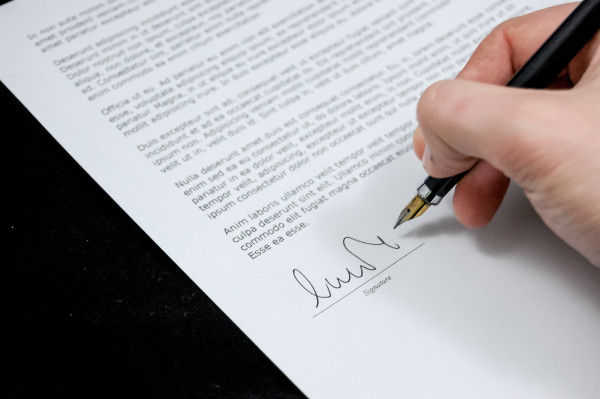
Disinheriting a spouse is fraught with pitfalls

It is entirely possible to disinherit a spouse if the correct formalities are followed, but what are the tax and other issues your estate will have to deal with if you are successful?
For inheritance tax, the starting point is that every person has a £325,000 allowance they can gift to others before incurring tax. This is known as the nil-rate band and applies both to gifts on death and lifetime gifts.
For outright lifetime gifts this allowance resets after seven years, and while there is no inheritance tax during a person's lifetime, these gifts will be taken into account when calculating how much of their allowance is available for their executors.
Anything above this allowance will generally be subject to IHT at 40 per cent.
However, there is an important exemption for gifts between spouses. Gifts to spouses are usually exempt from IHT and do not use any of the nil-rate band, either during life or on death.

This means that for a married couple the most tax-efficient estate plan will often involve the assets passing to the surviving spouse on the first death (whether outright or on trust) free of IHT.
Where the deceased spouse is UK domiciled and the surviving spouse is not UK domiciled, the spouse exemption is limited to £325,000.
The decision to disinherit a spouse could therefore be seen as a waste of the spouse exemption for IHT purposes.
That said, there will often be other reasons for wishing to disinherit a spouse.
New laws needed

MP Florence Eshalomi is calling for a law change to stop abusers from inheriting from their victims
A recent case has shone a spotlight on what can go wrong when disinheriting a spouse.
Brought to public attention by the MP for Vauxhall, Florence Eshalomi, the case involved a deceased wife who had been abused by her husband and sought to disinherit him.
Tragically, her new will failed to meet the necessary requirement of being witnessed by two people, resulting in her husband inheriting her estate after she committed suicide.
This was despite the fact that an inquest into her death linked it to domestic violence.
There is now a campaign to change the law to stop abusers from inheriting from their victims.
Although a change in the law may be worthwhile, it is already possible to disinherit a spouse if the correct formalities are followed (tragically they were not in this case).
Former spouses
If a spouse has been disinherited, it is possible (indeed likely) that they will feel aggrieved of this fact. Litigation is a possibility, and the decision to disinherit should be taken with eyes wide open to the risks.
A disinherited spouse may be able to bring a claim against their former spouse's estate under the Inheritance (Provision for Family and Dependents) Act 1975.
Former spouses who have been divorced before the deceased's death may also be able to make a claim under this act, although not if they have remarried since the divorce.
The court has discretion to order that reasonable financial provision be made to someone out of the deceased's estate, even though their will leaves them nothing.
Assessing "reasonable provision" will come down to the particular facts and needs of the parties involved, but the court has very wide discretion to consider all the circumstances.

It will be small comfort that any award made to the claiming spouse will be exempt from IHT – although not if they had divorced.
Indeed, inheritance disputes can be extremely costly. It may therefore be wise to consider reaching some kind of agreement, before death ideally, to avoid unnecessary costs, which will erode the inheritance received by the chosen heirs.
This agreement could even be tax efficient with careful will drafting.
Disinheriting a spouse is fraught with potential pitfalls and it would be prudent to engage a professional to provide a tax-efficient solution and to help mitigate a potential claim against a person's estate.
James Cook is a partner and Jonathon Goldstone is an associate at law firm Collyer Bristow



